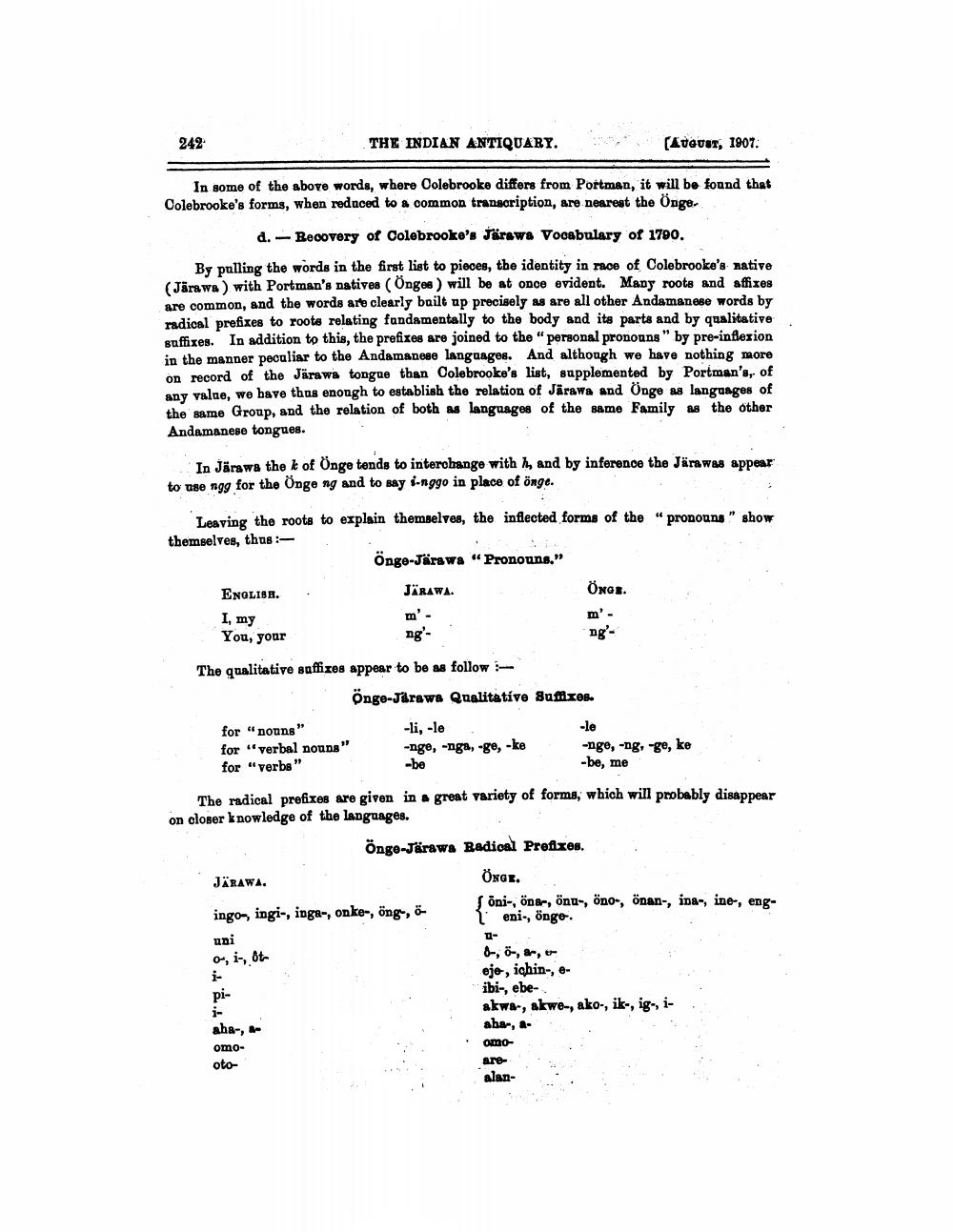________________
242
THE INDIAN ANTIQUARY.
(August, 1907:
In some of the above words, where Colebrooke differs from Portman, it will be found that Colebrooke's forms, when reduced to a common transcription, are nearest the Onge.
d. - Beoovery of Colebrooke's Järawa Vooabulary of 1700. By pulling the words in the first list to pieces, the identity in raos of Colebrooke's native (Järawa) with Portman's natives (Onges) will be at once evident. Many roots and affixes are common, and the words are clearly built up precisely as are all other Andamanese words by radical prefixes to roots relating fundamentally to the body and its parts and by qualitative suffixes. In addition to this, the prefixes are joined to the "personal pronouns" by pre-inflexion in the manner peculiar to the Andamanese languages. And although we have nothing more on record of the Järawa tongue than Colebrooke's list, supplemented by Portman's, of any value, we have thus enough to establish the relation of Järawa and Onge as languages of the same Group, and the relation of both as languages of the same Family as the other Andamanese tongues.
In Järawa the k of Onge tends to interchange with h, and by inference the Jära was appear to use ngg for the Onge ng and to say i-nggo in place of onge.
Leaving the roots to explain themselves, the inflected forms of the "pronouns" show themselves, thus :
Önge-Järawa "Pronouns." ENGLIBA. . JÄRAWA.
ONGE. I, my You, your
ng'
The qualitative suffizos appear to be as follow -
Önge-Järawa Qualitative Suffixes. for "nouns" -li, -le
-le for "verbal nouns" -nge, -nga, -ge, -ke -nge, -ng, -ge, ke for "verbs" -be
-be, me The radical prefixes are given in a great variety of forms, which will probably disappear on closer knowledge of the languages.
Önge-Järawa Radical Prefixes : JÄRAWA.
ONGE.
Soni-, öner, öna-, öno-, önan-, ina-, ine, engingo-, ingi-, ipge-, onke-, ổng,
t eni-, önge. uni
0, i, oth
pi
eje, ichin-, - ibi-, ebeakw&-, akwe-, ako-, ik-, ig-, - aha-, #omo
.
aha-, - omooto
alan




